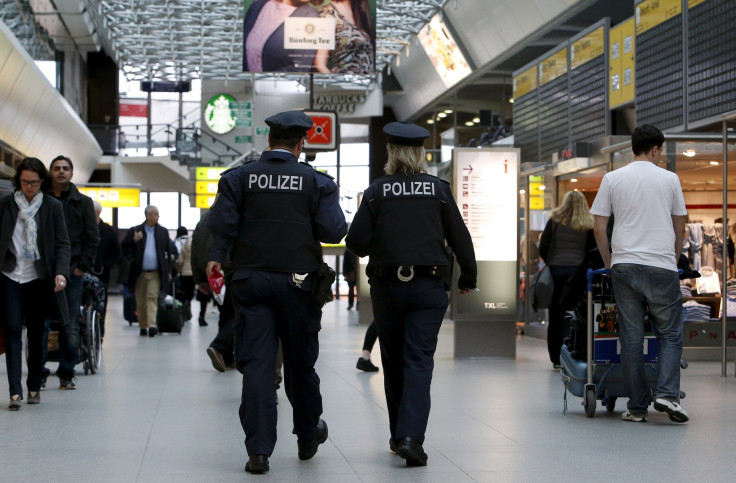Morroccan Arrested In Germany Over Possible Links To Brussels Bombers

German police are trying to establish whether a Moroccan asylum-seeker arrested when found to have non-matching identification documents after returning from Brussels is linked to the attackers who carried out bombings in the Belgian capital, prosecutors said on Friday
The prosecutor's office in Giessen said the mobile phone of the 28-year-old man arrested on Thursday in the town north of Frankfurt is being analyzed by investigators and police have asked a judge to issue an extended arrest warrant.
Der Spiegel reported earlier that a man arrested in Giessen had received mobile phone messages that included the word "fin" -- French for "end" -- three minutes before the explosion at Brussels' Maelbeek metro station on Tuesday.
The magazine also said that one of the messages included the name of Khalid El Bakraoui, the man Belgian police say blew himself up at the station.
Der Spiegel also said that a second man arrested near Duesseldorf in western Germany had been held in Turkey in the summer of 2015 and sent back to Europe after suspicion that he had wanted to enter Syria to fight with militant groups.
A spokesman for the prosecutor's office in Duesseldorf told Reuters that the man was arrested for robbery and was known to authorities, given that he had been in Turkey. Prosecutors have so far found no evidence that he had been planning an attack.
Germany's federal police chief said on Friday that Islamic State appeared eager to carry out "spectacular" attacks because it was coming under increased military pressure in Iraq and Syria.
This means the risk of Brussels-style attacks in Germany and elsewhere in Europe is high, Holger Muench, president of the BKA federal police, told Bild newspaper in remarks to be published on Saturday. "More attacks cannot be ruled out," he said.
Germany on Friday confirmed the death of a citizen in the attacks, a woman from the western town of Aachen on the Dutch-Belgian borders. She was a dual citizen, German police said, declining to name her second citizenship.
© Copyright Thomson Reuters {{Year}}. All rights reserved.





















